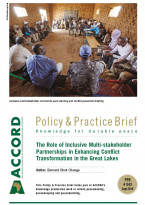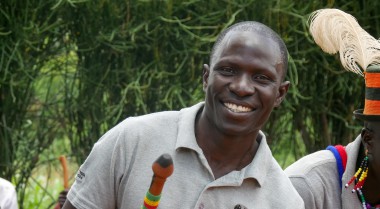
The Role of Inclusive Multi-stakeholder Partnerships
Cyclical conflicts which continue to plague the Great Lakes region of Africa necessitate a reflection on the effectiveness of peacebuilding interventions. While many reasons account for this, without knowledge of triggers of relapse into confl ict, and without enhancing grassroots-based approaches to managing the causes of conflict, peace will remain elusive under existing intervention frameworks. The Great Lakes Project (GLP), a collaborative initiative by the African Centre for the Constructive Resolution of Disputes (ACCORD), the Global Partnership for the Prevention of Armed Conflict (GPPAC), and the Nairobi Peace Initiative – Africa (NPI-Africa) – developed a three-year project in 2012, titled “Consolidating Peacebuilding in the Great Lakes of Africa”. The overall purpose of the project was to ensure that local communities were mobilised to engage with, and address, confl ict factors through grassroots civil society organisations (CSOs). The project also sought to identify and address the capacity gaps of local CSOs working towards peace and ensure that systems were established to continuously address confl icts in the region. The International Conference on the Great Lakes Region (ICGLR) was identifi ed as a critical partner in building peace in the region, considering its extensive network and access to state and non-state actors. This engagement therefore facilitated partnerships between existing CSO-platforms; strengthened their early warning systems and strengthened their confl ict management capabilities towards building resilient infrastructures for sustainable peace.

